





Polygraphs in Colorado – How to Prepare for a Typical Polygraph Test Examination
by Colorado Criminal Defense Lawyer – Attorney – H. Michael Steinberg
The improvement in the accuracy over the last three decades of polygraph tests in Colorado and across the nation cannot be understated. While still not admissible in court – they are used by private and public agencies to generate leads – obtain confessions (a deceptive use in my opinion) and to otherwise help establish guilt and innocence in the eyes of the “decision makers” – such as filing of charges District Attorneys – both in the civil and criminal justice systems.
DANGER: A WORD OF CAUTION ON POLYGRAPHS
As a former career Colorado District Attorney – I often used polygraphs in otherwise weak cases to obtain evidence against suspects – this use – if the suspect is believed to be guilty by law enforcement was questionable to me but was an accepted practice by District Attorney’s and Colorado police detectives around the state.
This article addresses the basics of polygraphs and how to prepare for them. Partial accreditation is given to Accountability Polygraphs of Colorado – here is a link to their website.
The Admissibility of Polygraph Tests in Court
In the case of United States v. Scheffer (1998), the United States Supreme Court stated, “There is simply no consensus that polygraph evidence is reliable: The scientific community and the state and federal courts are extremely polarized on the matter”.
Scheffer Fact Summary – Scheffer was charged and convicted in military court on several criminal charges, including use of methamphetamine. He claimed he did not knowingly use the drug, and he passed a polygraph test. The Respondent sought to introduce the polygraph test as evidence to support his credibility.
The Rule of Law – Under the United States Constitution (“Constitution”), the defendant’s right to present relevant evidence is subject to reasonable restrictions to accommodate other legitimate interests in the criminal trial process.
The Issue – Does a rule of evidence which does not allow the admissibility of polygraph evidence, unconstitutionally harm the right of the accused to present a defense?
The Reasoning – The exclusion of the polygraph evidence in this case does not significantly undermine fundamental elements of the defense. Polygraph evidence has been determined to be too unreliable, and the purpose of M.R.E. Rule 707 is to ensure that only reliable evidence is introduced. In order to be unconstitutional, the exclusion of evidence must undermine fundamental elements of the defense.
The Colorado Ban On Admission Of Polygraph Evidence
In the 2008 case of Bloom v People – the Colorado Supreme Court restated the law on polygraphs:
“We have previously held that polygraph evidence is per se inadmissible. See People v.Dunlap, 975 P.2d at 755 (affirming the rule of People v. Anderson, 637 P.2d 354, 361 (Colo.1981) ). This per se ban is an evidentiary rule rooted in the concern that polygraph evidence will prejudice the jury’s evaluation of a witness’s credibility. People v. Dunlap, 975 P.2d at 755-56; see alsoUnited States v. Scheffer, 523 U.S. 303, 309-10, 118 S.Ct. 1261, 140 L.Ed.2d 413 (1998) (describing the per se ban of polygraph evidence as an evidentiary rule designed to eliminate unreliable evidence from trial).”
The Polygraph Machine
An example of one state – describes what the standard is for polygraph machines:
The minimum instrument standard – A person purporting to detect deception or to verify truth of statements through the use of an instrument must use an instrument which records visually, permanently and simultaneously:
(1) A subject’s cardiovascular pattern;
(2) A subject’s respiratory pattern; and
(3) A subject’s galvanic skin response.
For better or for worse – licensed polygraph examiners are trained to detect deception, verify truthfulness or provide a diagnostic opinion of either, through the use of an instrument or mechanical device.
By definition, an instrument that simultaneously records two or more channels of data. The term now most commonly signifies the instrument and techniques used in the psychophysiological detection of deception (PDD), though polygraphs are also used in research in other sciences. In PDD the polygraph traditionally records physiologic activity with four sensors: blood pressure cuff, electrodermal sensors, and two respiration sensors. Some instruments also record finger pulse amplitude using a PPG.
The Basics About Polygraph Preparation
While policies that gauge medical fitness for an exam vary, generally people who are sick (e.g. sinus infection, common cold, etc.) and pregnant women are not tested, because they may not be able to comfortably take the test. Most prescribed medication, including blood pressure medication, will not preclude testing.
The US Department of Defense – has these suggestions about polygraph preparation:
-
Don’t ask others who have taken a polygraph what theirs was like.
-
Don’t spend time soul searching your life thinking of things that may be asked during the test.
-
Don’t be influenced by any anti-polygraph websites.
-
Don’t anticipate what questions will be asked.
-
Don’t be late for your scheduled interview time.
-
Get a good night sleep the night before your test.
-
Maintain your normal routine prior to test (i.e. drink coffee, eat breakfast, etc.).
-
Take your prescribed medications as directed by your physician.
-
Discuss any concerns with your polygraph examiner before – not during – the process if possible.
-
Most screening exams take two to four hours – and sometimes audio and video recordings are made.
The Three Phases of a Polygraph Examination
The exams consist of three phases:
Pre-Test Phase – The examiner introduces himself/herself and insures that you consent to the test by having you sign a consent form. You are informed of your right against self-incrimination and your right to obtain and consult with an attorney. The nature and characteristics of the instrument and examination are explained to you.
The instrument measures your physical responses to questions using:
Two pneumograph tubes that are place around your chest and stomach to measure respiration.
Small cuffs that are attached to your fingertips to measure electro-dermal activity.
A blood pressure cuff to measure blood flow and heart rate.
A sensor pad on chair seat to detect movement.
Typically all questions are reviewed before the test begins, and you are given an opportunity to discuss any concerns and ask questions about the process.
You can only answer “yes” or “no” to the questions.
Normal nervousness will not affect the exam results. Examiners expect people to be nervous. They adjust the instrument to your body, and then look for changes.
The test is voluntary, and you can terminate it at any time.
In-Test Phase – You are asked relevant and non-relevant questions while hooked up to the monitoring equipment, and the examiner analyzes the chart. This phase takes about five to six minutes and is repeated three to six times.
Post-Test Phase – If the test is inconclusive or if deception is indicated, you may be questioned about your responses. Problem questions can be rephrased before the In-Test phase is repeated.
The examiner reaches a preliminary decision regarding the results of the test before you leave, but can’t disclose it to you, because the chart must be reviewed for quality control purposes and validated by another examiner.
Accountability Polygraphs of Colorado has these suggestions on their website:
Polygraph examinations are best accomplished when you are properly prepared for the experience.
Physical Preparation – Remember to take your medications (if applicable) as prescribed. However, please do not use medical marijuana within 24 hours prior to your scheduled polygraph examination.
Ensure that you allot yourself a sufficient amount of rest/sleep prior to your scheduled appointment (recommend 6-8 hours).
Avoid any strenuous physical exertion (work / exercise 4 hours prior to your exam).
Do consume adequate nourishment and fluids prior to your exam (breakfast/lunch).
You should avoid excessive consumption of caffeine products (4 hours prior to your exam).
Cognitive Preparation – Recognize and resolve any denial and/or minimization issues regarding your offense(s) and/or violations.
Examine yourself for present attitudes, beliefs, and behaviors (red flags) which should be disclosed during your exam.
Yield or concede that you can learn by being self-aware and by actively listening to the input and observations of others around you (treatment providers, probation officer, group, polygraph examiner, family support system).
Emotional Preparation – Remember to approach your examination with the purpose in mind that you can and will make it a positive experience.
Ensure that you avoid becoming defensive, impatient, and/or argumentative either during your exam or prior to with others.
Always remember to engage in active listening during the examination, You thus enhance your ability to properly focus on the context of the questions and answer them with a confident truthful response.
Do answer questions asked of you in a truthful, well thought-out, organized, and logical manner – thus reducing the likelihood of unwarranted fears or uncertainty.
You must avoid assigning blame to others during your examination. By not blaming others, your ability to view your issues in a logical accountable manner is greatly improved.
Who Uses the Polygraph?
The four sectors that use the polygraph include law enforcement agencies, the legal community, government agencies, and the private sector. They are further described as follows:
• Law Enforcement Agencies – Federal law enforcement agencies, state law enforcement agencies, and local law enforcement agencies such as police and sheriff’s departments.
• Legal Community – U.S. Attorney Offices, District Attorney Offices, Public Defender Offices, defense attorneys, Parole & Probation Departments.
– The court systems in cooperation with probation and parole officers and therapists to monitor convicted sex offenders.
– Attorneys in civil litigation.
•Government Agencies – Department of Defense Agencies – Agencies in the Intelligence Community
•Private Sector – Companies and corporations under the restrictions and limitations of the Employee Polygraph Protection Act of 1988 (EPPA). – Private citizens in matters not involving the legal or criminal justice system.
Are There Errors in a Polygraph Examination? (from American Polygraph Association – APA)
False positives, False negatives: While the polygraph technique is highly accurate, it is not infallible and errors do occur – as is the case with any test. Polygraph errors may be caused by the examiner’s failure to properly prepare the examinee for the examination, or by a misreading of the physiological data on the polygraph charts. As with any test involving humans, it’s possible for an examiner to do everything correctly and still have the test result in an error. Errors are usually referred to as either false positives or false negatives. A false positive occurs when a truthful examinee is reported as being deceptive; a false negative, when a deceptive examinee is reported as truthful. Since it is recognized that any error is damaging, examiners utilize a variety of procedures to identify the presence of factors which may cause errors or an unbiased review of the polygraph records.
Protective Polygraph Procedures:
an assessment of the examinee’s emotional state
medical information about the examinee’s physical condition
technical questions to evaluation the examinee’s response capabilities
factual analysis of the case information
a pre-test interview and detailed review of the questions
quality control reviews
An Polygraph Examinee’s Remedies
If a polygraph examinee believes that an error has been made, there are several actions that may be taken including the following:
request a second examination
retain an independent examiner for a second opinion
file a complaint with a state licensing board if a violation of any laws or rules are suspected
file a complaint with the Department of Labor under EPPA if the examination was conducted by or on behalf of the examinee’s employer
file a request for the assistance of the American Polygraph Association or the state association where the test was conducted
Why Do Accuracy Figures Vary?
One of the problems in discussing accuracy figures and the differences among the statistics quoted by proponents and opponents of polygraph techniques is the way the figures are calculated. At the risk of oversimplification, critics, who often don’t understand polygraph testing, classify inconclusive test results as errors. In a real life setting an inconclusive result simply means the examiner is unable to render a definite diagnosis of truth or deception. In such cases a second examination is usually conducted at a later date.
To illustrate how the inclusion of inconclusive test results can distort accuracy figures, consider the following example: If 10 polygraph examinations are administered and the examiner is correct in 7 decisions, wrong in 1, and makes no decision as to truth or deception in 2 (inconclusive), we calculate the accuracy rate as 87.5% (8 definite results, 7 of which were correct). Critics of the polygraph technique often calculate the accuracy rate in this example as 70% (10 examination with 7 correct decisions). Since those who use polygraph testing do not consider inconclusive test results as meaningful and do not hold them against the examinee, considering them as errors is clearly misleading and certainly skews the figures.
To date, there have been only a limited number of research projects on the accuracy of polygraph in screening contexts, primarily because of the difficulty in establishing ground truth in real world situations. However, since the same physiological measures are recorded and the same basic physiological principles may apply in both event-specific and screening examinations, there is little reason to believe that such testing is of no value in screening situations as some opponents claim. With that said, however, the number of issues, the lack of a known incident along with other factors likely result in lower average accuracies than seen in event-specific testing circumstances.
While no polygraph technique is infallible, research clearly indicates that when administered by a competent examiner who follows proper protocols, polygraph testing is one of the most accurate means available to determine truth and deception.
Please call our law firm if you have questions about ..
Polygraphs In Colorado
H. Michael Steinberg has been a Colorado criminal law specialist attorney for 40 years (as of 2012). For the First 13 years of his career, he was an Arapahoe – Douglas County District Attorney Senior prosecutor. In 1999 he formed his own law firm for the defense of Colorado criminal cases.
In addition to handling tens of thousands of cases in the trial courts of Colorado, he has written hundreds of articles regarding the practice of Colorado criminal law and frequently provides legal analysis on radio and television, appearing on the Fox News Channel, CNN and Various National and Local Newspapers and Radio Stations. Please call him at your convenience at 720-220-2277
If you have questions about Polygraphs In Colorado in the Denver metropolitan area and throughout Colorado, attorney H. Michael Steinberg will be pleased to answer those questions and to provides quality legal representation to those charged in Colorado adult and juvenile criminal matters.
In the Denver metropolitan area and throughout Colorado, attorney H. Michael Steinberg provides quality legal representation to those charged in Colorado adult and juvenile criminal matters.
Other Articles of Interest:
- Attacking The Investigation of Date – Acquaintance Sexual Assault – The Investigation – Part I of II
- Colorado Self Defense Law – How To Avoid Being Charged Yourself – Dealing With The Police Investigators
- The Filing of Motions in Colorado – Typical Colorado Pre-Trial Motions
- Investigation by the Defense
- Colorado Criminal Law and Defenses – Understanding the Defense of Entrapment























